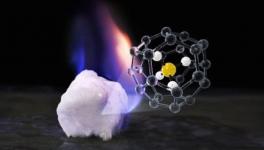We Asians Are Even More Mixed-up Than We Thought
On December 4, the GenomeAsia 100K Project published its first major findings in Nature. The consortium formed for this project has been trying to fill the 'West'-centric gap in understanding the human genetic landscape. They have been mapping the Asian population, of which though is about half the global population, has only 10% samples in the existing genomic global databases.
One of the lead authors of the new Nature report is Partha P. Majumdar, from the National Institute of Biomedical Genomics, India. He is also the president of the Indian Academy of Sciences. The project has institutions and organisations from a number of countries including Singapore, Korea, and leading biotech companies such as Genetech, USA.
The report carries a detailed genetic analysis of about 1700 individuals across Asia. This is a critical first step. The nuances it provides about human diversity and its particular picture in Asia are interesting as good, steady science. The study confirms the complex origins of most ancient as well as current human communities, giving the lie to any triumphalist claims of genetic purity. In fact, it implies an even more complex story about the mixing of 'modern' human and Denisovan human lineages than we thought we knew.
The study will, of course, have outcomes of interest to understanding health and disease as the press release highlights, but any actual practical outcomes will be long in coming, uncertain, and sadly more dependent on profit-oriented pharma vagaries than on the actual needs of the human communities studied.
Get the latest reports & analysis with people's perspective on Protests, movements & deep analytical videos, discussions of the current affairs in your Telegram app. Subscribe to NewsClick's Telegram channel & get Real-Time updates on stories, as they get published on our website.















